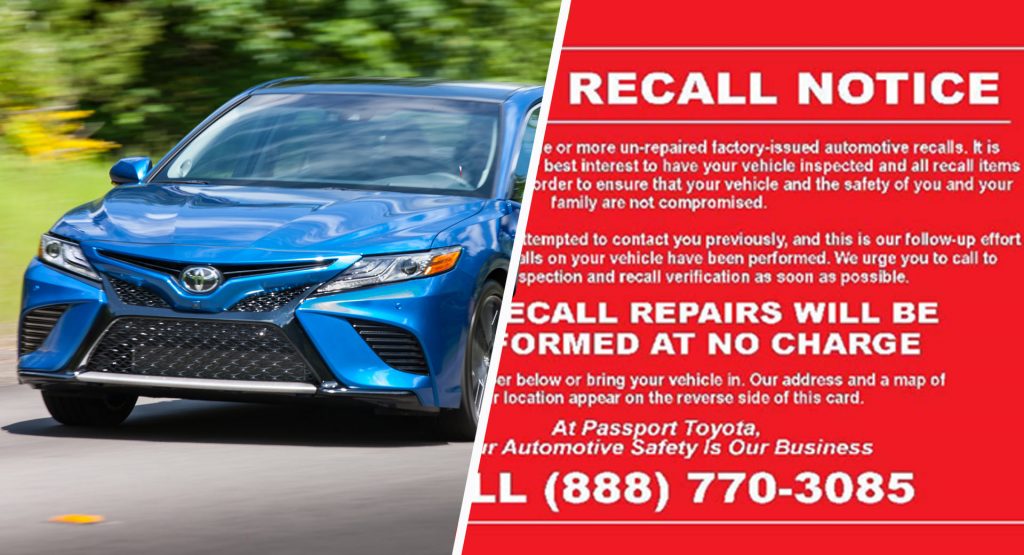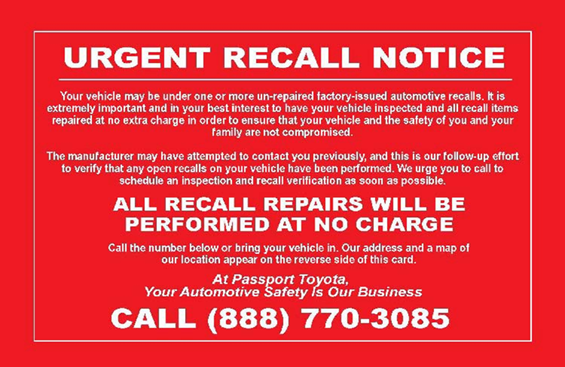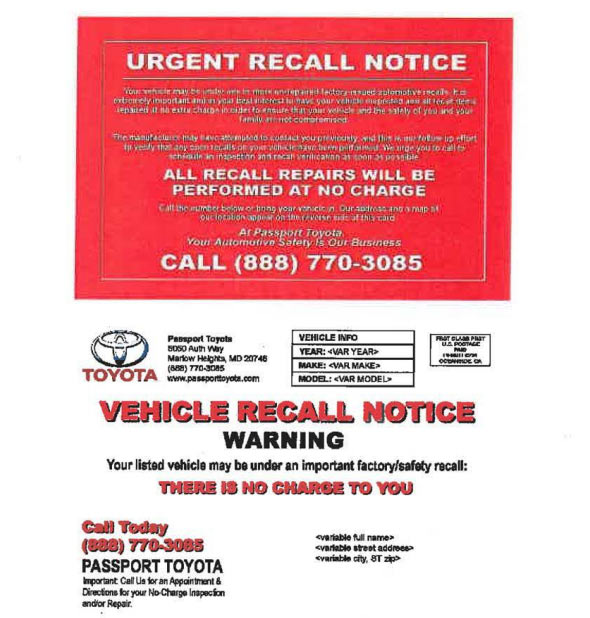Recalls can be a matter of life or death, so it’s particularly upsetting that a group of dealerships has been caught sending out more than 21,000 fake recall notices.
According to the Federal Trade Commission, the dealerships – Passport Toyota and Passport Nissan – worked with marketing firm Temecula Equity Group to trick consumers into visiting service centers under the guise of an “urgent recall.”
The FTC says the scam began in early 2015 when the dealers sent nearly 7,000 recall notices to Toyota owners. In a bold headline saying “URGENT RECALL NOTICE,” the mailing told owners “Your vehicle may be under one or more un-repaired factory-issued automotive recalls. It is extremely important and in your best interest to have your vehicle inspected and all recall items repaired at no extra charge to ensure that your vehicle and the safety of you and your family are not compromised.”
The mailing went on to say Toyota may have attempted to contact them in the past and urged owners to schedule an appointment as soon as possible. It also stressed that all recall repairs would be performed at no cost.
In June of 2017, the group sent similar letters to Nissan owners urging them to visit the dealership for emergency recall repairs. Of course, there was one massive problem with this campaign – a vast majority of recipients didn’t have open recalls on their vehicles.
That didn’t stop the phones from ringing off the hook as hundreds of concerned owners contracted the dealers for more information. The FTC says many of them were told they had to visit the dealership to see whether or not their vehicle was actually under a recall.
That’s obviously false as the National Traffic Highway Safety Administration allows owners to easily check their vehicle for recalls using their VIN. The dealerships likely knew this, but it didn’t matter as the FTC alleges the fake recall notices were designed to “increase business at the dealerships’ service departments, not to alert consumers about actual recalls.”
The dealerships and marketing firm settled with the FTC and are now “permanently prohibited from misrepresenting, expressly or by implication: 1) whether any motor vehicle is subject to an open safety recall or service campaign, or 2) certain other material facts about motor vehicles.” That sounds like a slap on the wrist, but Consumer Reports notes that if any of the parties violates the agreement they could face up to a $41,000 (£31,086 / €35,407) fine per violation, per day.
Needless to say, this was some pretty egregious behavior by the dealerships and FTC’s Director of the Bureau of Consumer Protection stated “Deceptive fake recall notices may not only trick consumers into visiting a dealership, but also may cause them to ignore legitimate recall notices in the future, risking their safety.”






